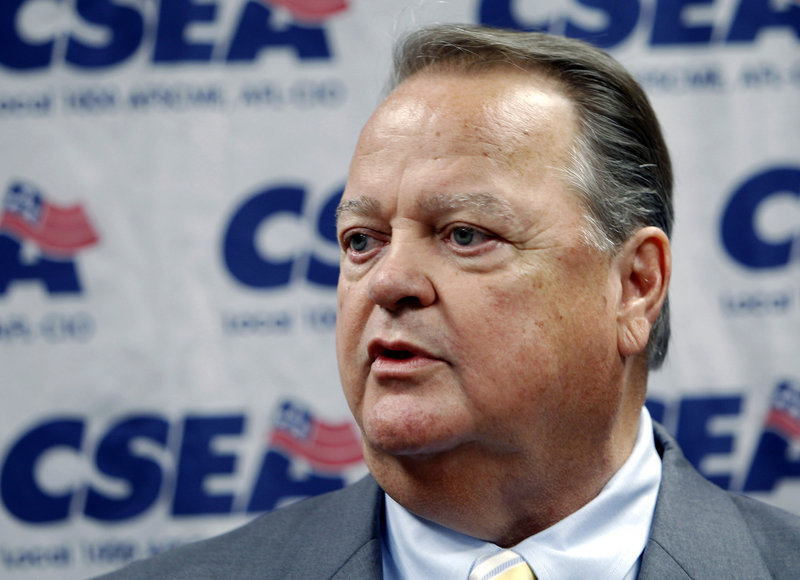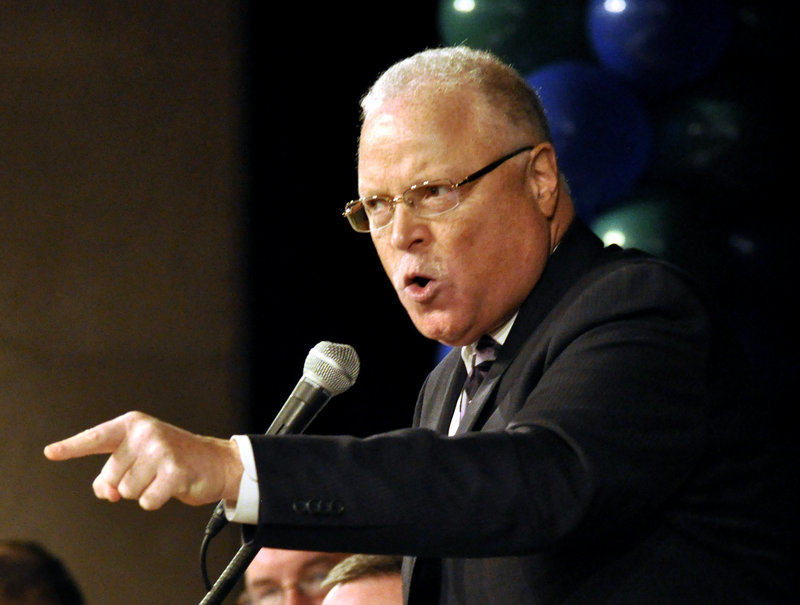WASHINGTON – A heated battle is taking place inside a giant U.S. public employees’ union following its crushing failure this week to oust Wisconsin Gov. Scott Walker — organized labor’s biggest political loss in decades.
At stake is the direction of the 1.3-million-member American Federation of State, County and Municipal Employees after 31 years under retiring president Gerald McEntee. He’s been known for his zeal to build and maintain AFSCME’s clout as a leading liberal voice and political kingmaker in the Democratic Party.
A major question is whether that should continue.
Fresh off losses in the Wisconsin recall election and in California municipal referendums rolling back public employee pension and health benefits, the union will pick a successor to the 77-year-old McEntee in two weeks.
The race is shaping up as a broader debate on whether AFSCME should become more prudent in doling out cash to Democratic causes and candidates and perhaps make itself less a lightning rod for attacks from conservatives.
The union’s No. 2 official, secretary-treasurer and McEntee protege Lee Saunders, faces a strong challenge from Danny Donohue, the union’s leader in New York state.
Donohue questions whether the union’s free-spending ways in the political arena have been effective, given the pounding public employees are taking around the country.
Delegates will select their new leader June 20 at the union’s convention in Los Angeles.
AFSCME has pledged to spend about $100 million this election cycle — more than any other union — to help re-elect President Obama and boost other labor-friendly candidates at the federal, state and local levels. AFSCME was the biggest overall spender in the 2010 midterm elections, pouring about $93 million into races around the country.
Donohue criticizes McEntee’s approach as “checkbook unionism,” saying the union has been too Washington-focused and has lost sight of the issues facing members locally.
“We seem to be trying to throw money at problems,” Donohue said in an interview. “Instead of writing a check, how do we galvanize our members?”
“It’s just not about the Senate and the House. It’s about the governor races, the county races, who’s going to be mayor in some cities. Our enemies … didn’t start in Washington, they started at the school board and county level,” he said.
The union has been hit hard in recent years, losing about 10 percent of its members since 2009, according to public filings and internal documents reviewed by The Associated Press.
AFSCME claims it has 1.6 million members, but a spokesman says that includes retirees. Its most recent annual report with the U.S. Department of Labor says it had about 1,423,000 active members in 2011. That number has dropped to about 1,315,000 as of February, documents show.
Saunders defends the McEntee era and says accusations the union is too focused on national politics are wrong. He said about 65 percent of the union’s political budget goes to local battles.
“I think we’ve got to recognize that we have one of the best political and legislative operations in the country and I think we’ve done a lot of things that are right,” Saunders said in an interview.
Donohue claims the union doesn’t share enough information with members about how their political money is spent.
Some labor leaders questioned AFSCME spending $1 million in January to buy TV ads in Florida criticizing Mitt Romney ahead of the state’s GOP presidential primary. They questioned whether that was the best use of the union’s money in a year when collective bargaining seemed under attack in more than a dozen state legislatures around the country.
“Rather than just dumping it all on the primary fight with Romney, we could have spent half of it mobilizing our members,” Donohue said.
Saunders said the Florida ad buy linking Romney to a culture of “corporate greed” during his time running the private-equity firm Bain Capital was effective in “softening up” the presumptive GOP nominee.
McEntee, who has strongly endorsed Saunders, defends his own tenure as having built the strongest grass-roots operation in American labor.
Copy the Story Link
Send questions/comments to the editors.




Success. Please wait for the page to reload. If the page does not reload within 5 seconds, please refresh the page.
Enter your email and password to access comments.
Hi, to comment on stories you must . This profile is in addition to your subscription and website login.
Already have a commenting profile? .
Invalid username/password.
Please check your email to confirm and complete your registration.
Only subscribers are eligible to post comments. Please subscribe or login first for digital access. Here’s why.
Use the form below to reset your password. When you've submitted your account email, we will send an email with a reset code.